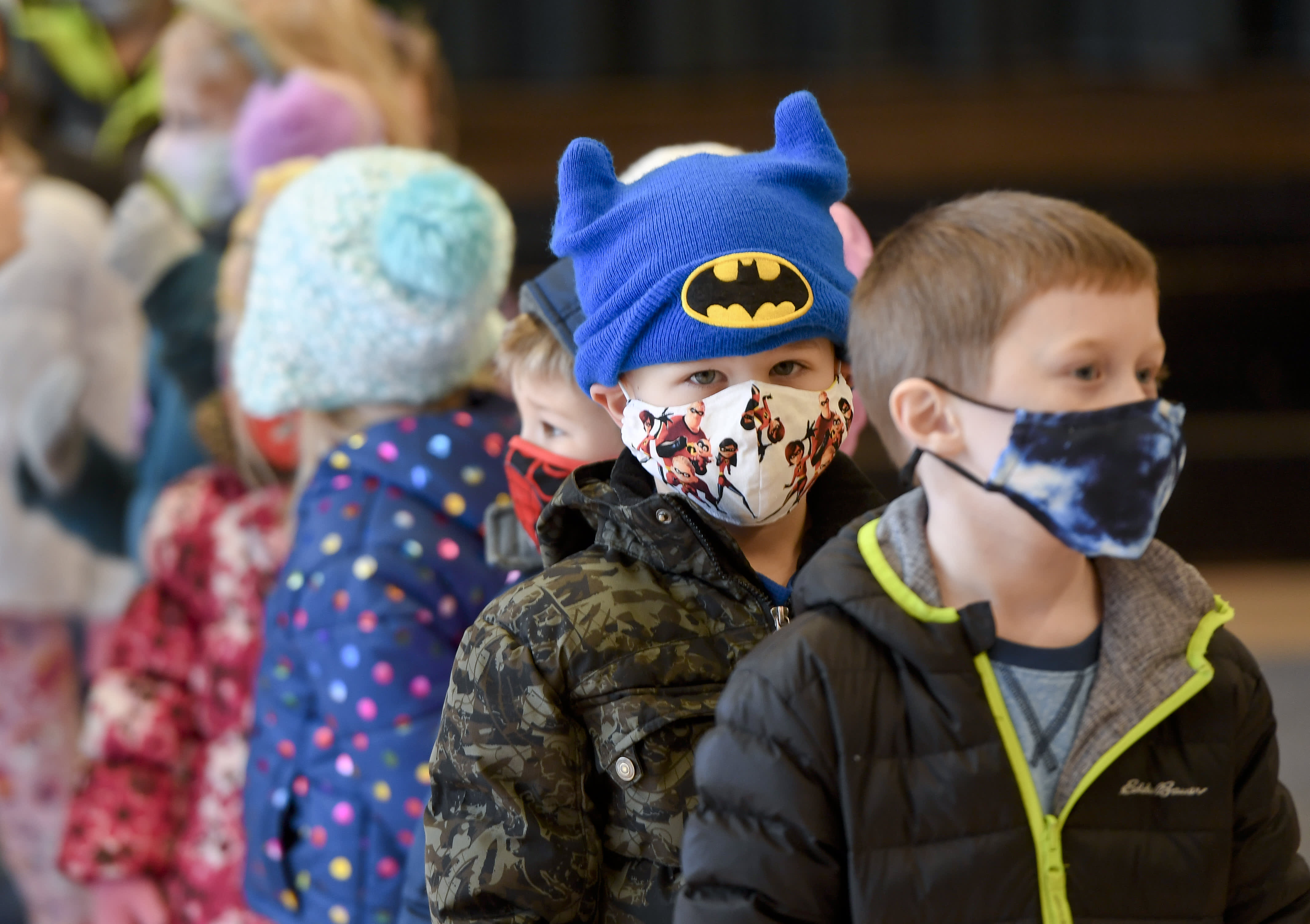Covid hospitalizations are rising among children, and one age group is particularly vulnerable at the moment: kids under 5.
Infants to 4-year-olds are the only age group in the U.S. that isn’t eligible for vaccination, as the highly contagious omicron variant sweeps through communities.
Dr. Rochelle Walensky, director of the Centers for Disease Control and Prevention, said earlier this month there’s no indication omicron makes children sicker compared with past variants. The unprecedented levels of transmission across the nation, she said, is likely behind the increase in hospitalizations.
About 7 out of every 100,000 children under 5 were hospitalized with Covid as of Jan. 8, more than double the rate in December, according to CDC data from 250 hospitals across 14 states.
White House chief medical advisor Dr. Anthony Fauci said Wednesday that children are much less likely to develop severe disease from Covid compared with adults but that the risk is not zero.
“We have plenty of children, when you look at children’s hospitals throughout the country, who are severely ill with Covid-19 requiring hospitalization, some even dying,” Fauci said.
Dr. Roberta DeBiasi said most of the children admitted to Children’s National Hospital in Washington, D.C., with Covid during the omicron wave have been under 5 years old.
“It is overwhelmingly the group that has not been vaccinated, which is the under 5 years of age,” said DeBiasi, who runs the infectious disease division at the hospital.
Dr. Andi Shane, infectious disease division chief at Children’s Healthcare of Atlanta, said many parents understandably feel a loss of control as the pandemic drags on with repeated waves of infection.
However, Shane said, parents should know that they are not powerless in the face of the virus and there are practical steps they can take to protect their kids. Though children under 5 can’t get the vaccines, parents can protect them by making sure every other eligible person in the family is fully vaccinated and gets a booster shot, according to doctors who spoke with CNBC. Everyone 12 and older is currently eligible for Pfizer and BioNTech‘s booster shot at least five months after their second dose.
People who are vaccinated and boosted have up to 75% protection against symptomatic infection from omicron, according to a real-world study from the U.K. Health Security Agency.
Guarding infants and toddlers from Covid is particularly challenging because so few tools are available to protect them, said Dr. Allison Bartlett, an infectious disease specialist at Comer Children’s Hospital in Chicago. They are not eligible for the vaccine, the CDC advises strongly against putting masks on children under 2 years old, and the FDA has not authorized over-the-counter Covid tests for them.
“They’ve got three strikes against them in terms of preventing infection,” Bartlett said. However, parents can protect them by using the full range of mitigation measures that reduce the risk of family members catching the virus and spreading it to the vulnerable, she said.
“It just is that much more imperative on everyone else in the household and in contact with the kids less than 5 to wear their own masks and socially distance and limit their activity outside the home and take every other risk-mitigation step to help cocoon and protect the child,” Bartlett said.
Shane said many parents are understandably tired of the pandemic and want their children and families to have normal social interactions again.
“It’s very challenging with these surges that we have every couple of months that we have to pull back and go into not doing things that we really want to do,” Shane said. “But we really do have to do that for short periods of time, at least until we get everybody vaccinated and boosted.”
Fauci said the FDA could approve the vaccine for kids under 5 in the next month, though he said there’s no guarantee that will happen. Younger children will likely need three doses, because two shots did not induce an adequate immune response in kids 2 to 4 years old in Pfizer’s clinical trials. Pfizer said it has not identified any safety concerns during its trials with the doses for young kids, which at 3 micrograms each are much smaller than those for adults.
